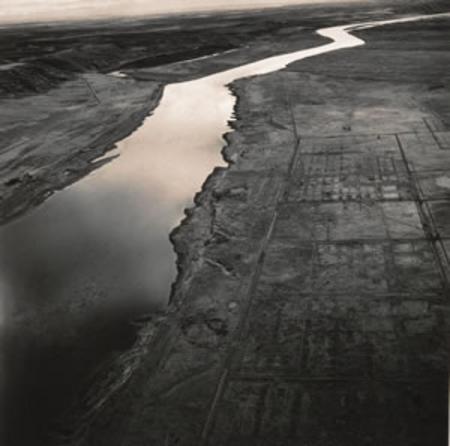forum
library
tutorial
contact

Don't Cave into Feds on Hanford Cleanup
by Sen. Adam KlineSeattle Times, November 3, 2008
|
the film forum library tutorial contact |

|
Don't Cave into Feds on Hanford Cleanup
by Sen. Adam KlineSeattle Times, November 3, 2008 |
The state Senate is likely to consider legislation that restores elements of Initiative 297,
which dealt with Hanford nuclear reservation cleanup but was ruled unconstitutional in the federal courts.
 In 2004, Washington voters passed Initiative 297 with the highest vote total of any initiative in state history, more than 70 percent. Its key goal was to stop the dumping of mixed hazardous and radioactive waste in unlined dirt trenches at Hanford. Aware that a plume of over a million gallons of radioactive and other hazardous chemical waste is entering the groundwater and is headed for the Columbia River, voters adopted a common-sense standard: Quit dumping until the stuff already there is cleaned up.
In 2004, Washington voters passed Initiative 297 with the highest vote total of any initiative in state history, more than 70 percent. Its key goal was to stop the dumping of mixed hazardous and radioactive waste in unlined dirt trenches at Hanford. Aware that a plume of over a million gallons of radioactive and other hazardous chemical waste is entering the groundwater and is headed for the Columbia River, voters adopted a common-sense standard: Quit dumping until the stuff already there is cleaned up.
Soon after the Bush administration took power, it proposed a budget for the Department of Energy that showed a marked slowdown in cleanup activities, even while it proposed adding more to the unlined trenches. The long-term solution, a vitrification plant that would encase the waste in glass for storage, was far behind schedule. It was this threat that prompted I-297.
Simple common sense requires that we clean up what we've got before we add more. This isn't rocket science. Still, the feds took I-297 to court on the grounds it asserted state jurisdiction over radioactive material, not just the other hazardous materials which every state can regulate. Recently, a federal appeals court sided with the federal government, but at the same time outlined a method by which the state could regulate "mixed" wastes - those leaking, thin-shelled tanks of mixed radioactive and other toxic wastes that are responsible for the groundwater pollution.
Until September, the state Department of Ecology and the U.S. Department of Energy were locked in negotiations, in which the feds - to put it charitably - wanted to modify an earlier agreement to allow them to both slow the cleanup schedule by two decades and simultaneously add new waste from other states, and by the way, only a slight speedup in building the vitrification plant. Our director of Ecology, Jay Manning, with Gov. Christine Gregoire's backing, refused to budge.
I plan to introduce a version of our past state legislation, one that will comply with the court's ruling. Since 2004, lobbying by Hanford's federal contractors has stopped versions of this bill. Their argument: If we stop importation of new waste to Hanford, other states will do likewise. In fact, the only two other states in a position to do so have already enacted laws like the one we propose.
New Mexico, with the nation's only operating underground radioactive-waste repository, and Nevada, the site of the proposed high-level nuclear-waste repository, already require that mixed wastes from other Energy Department nuclear-weapons plants are not dumped or stored so long as existing wastes are out of compliance with their state laws. Congress specifically allowed this authority to the states; it is now simply a matter of exercising it according to the court's own opinion.
I am disappointed The Times opposed both I-297 and more recent attempts to close this loophole. When other initiatives have been challenged in court, The Times has often opined that "the will of the people" should be implemented. In November 2007, addressing I-747, which limited growth of the property tax revenues to one percent per year, The Times editorial page wrote, "We believe the people need to be protected from having their will repeatedly denied." Why not now?
Most recently, The Times applauded the decision of the state Department of Ecology not to appeal the ruling on I-297's constitutionality, calling the litigation a waste of money. In fact, the bulk of the costs were paid by the federal government; the state's share amounted to $386,500, or 6 cents per Washingtonian. In view of the potential benefit to each of us, that was a pittance.
The bottom line: In dealing with the Bush administration and the two other states housing nuclear-waste repositories, we will take an assertive role or we will find ourselves with a radioactive Columbia River. I choose the former.
learn more on topics covered in the film
see the video
read the script
learn the songs
discussion forum
